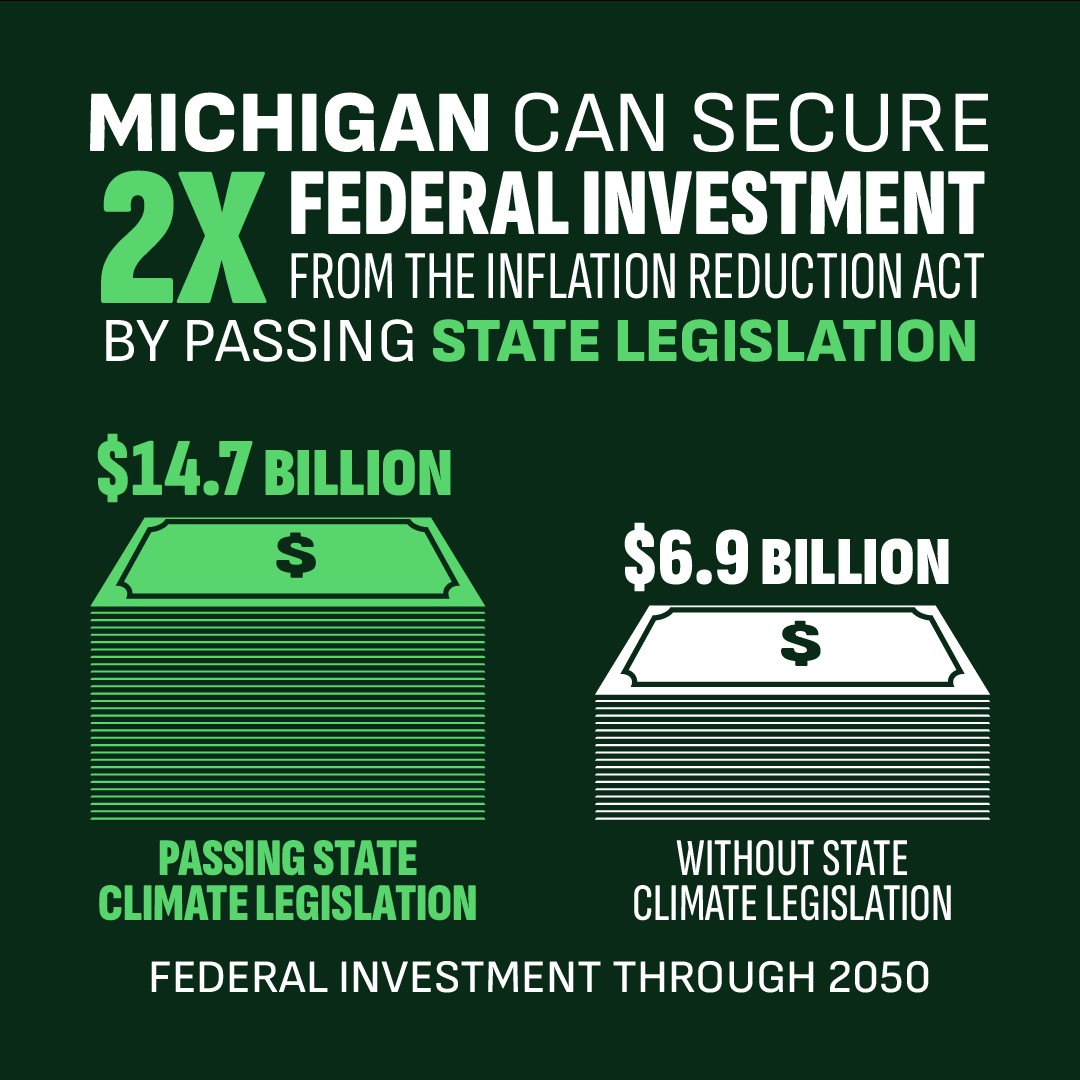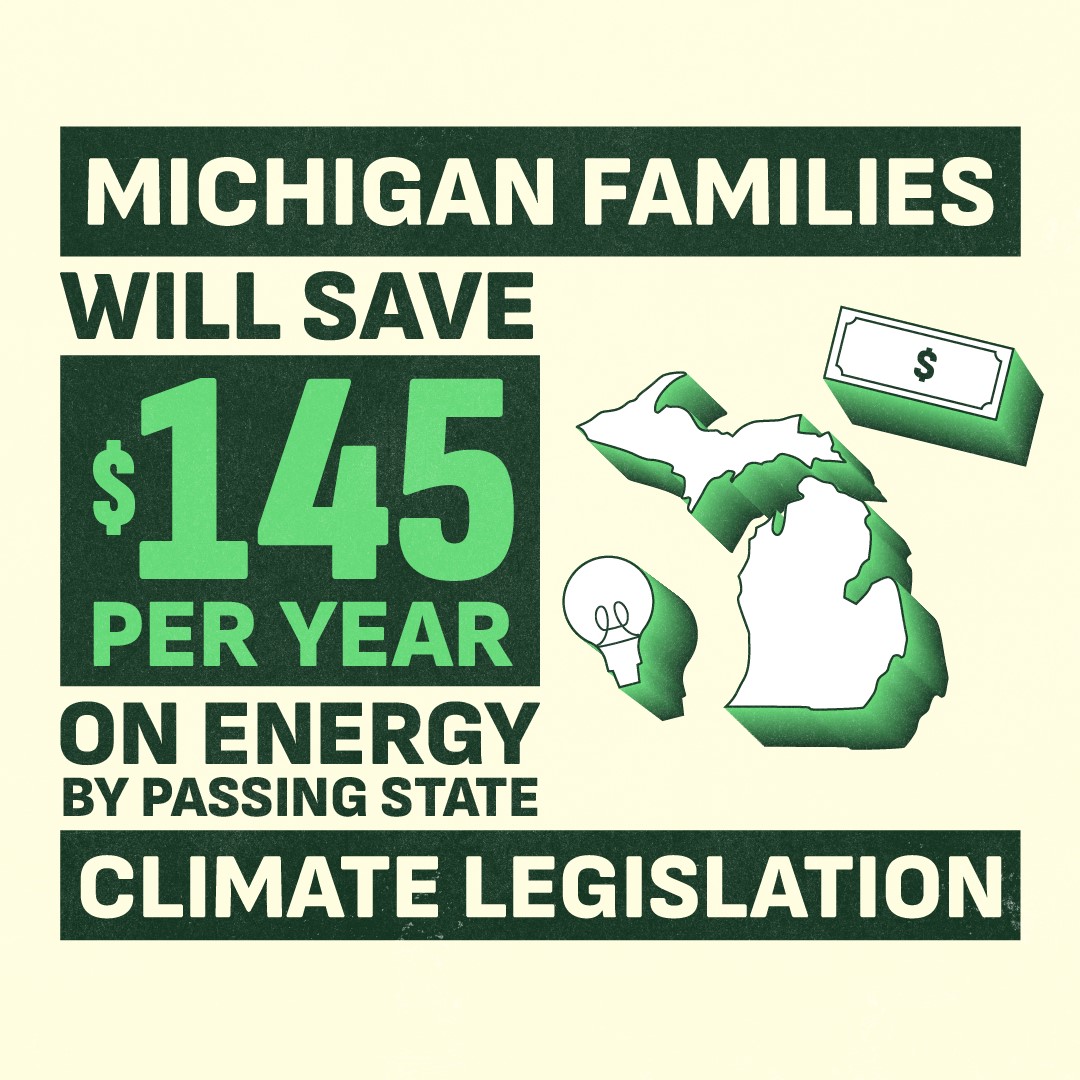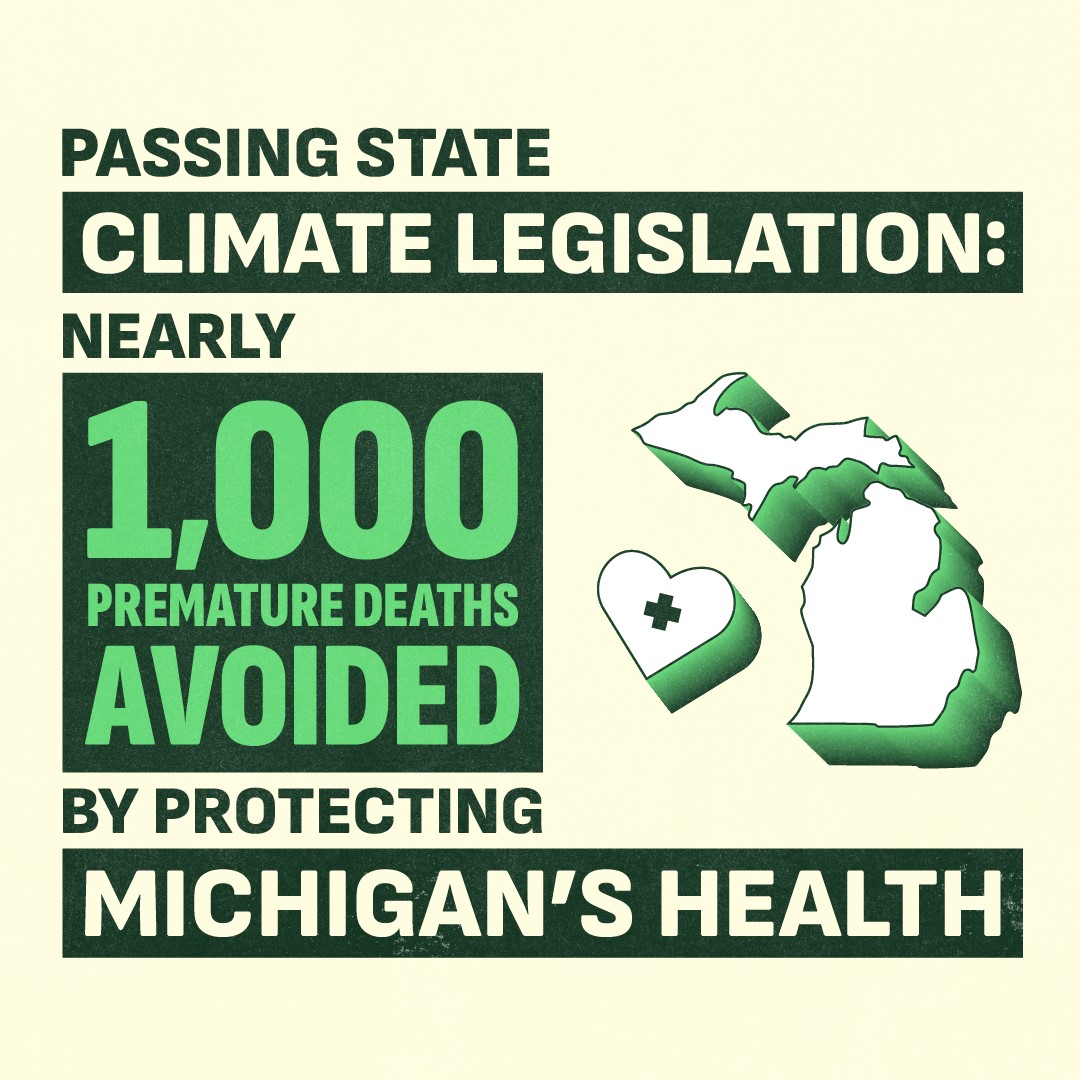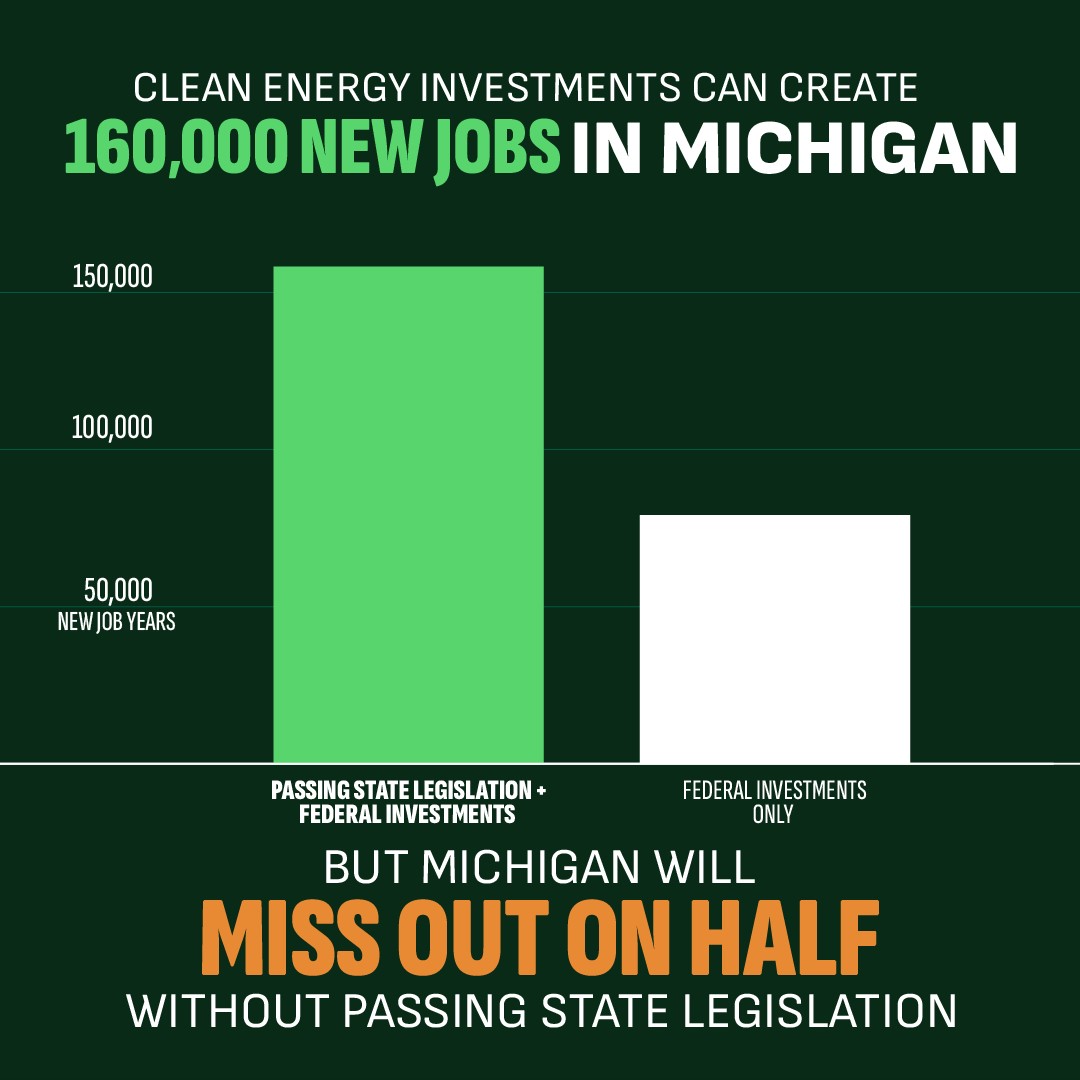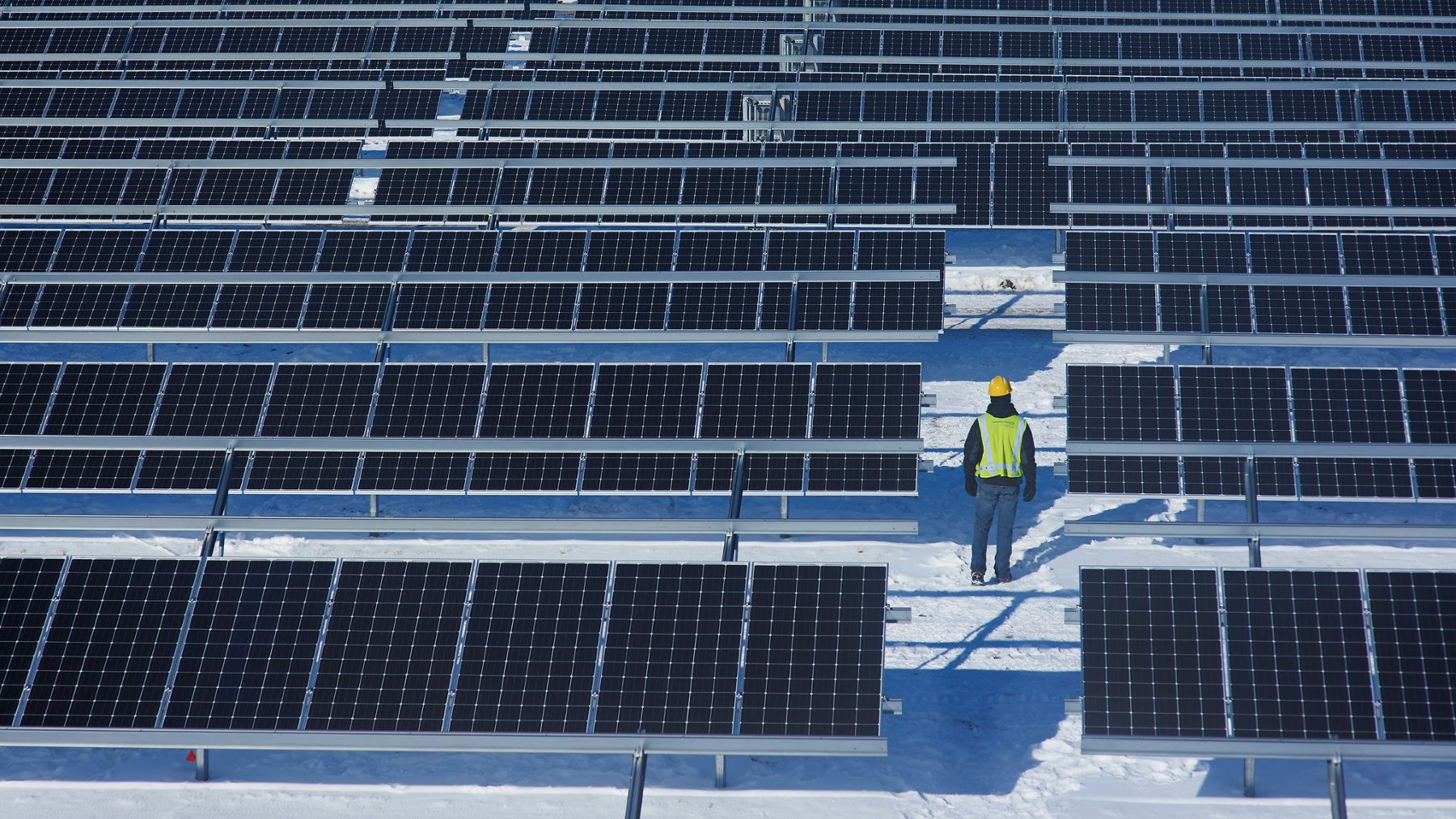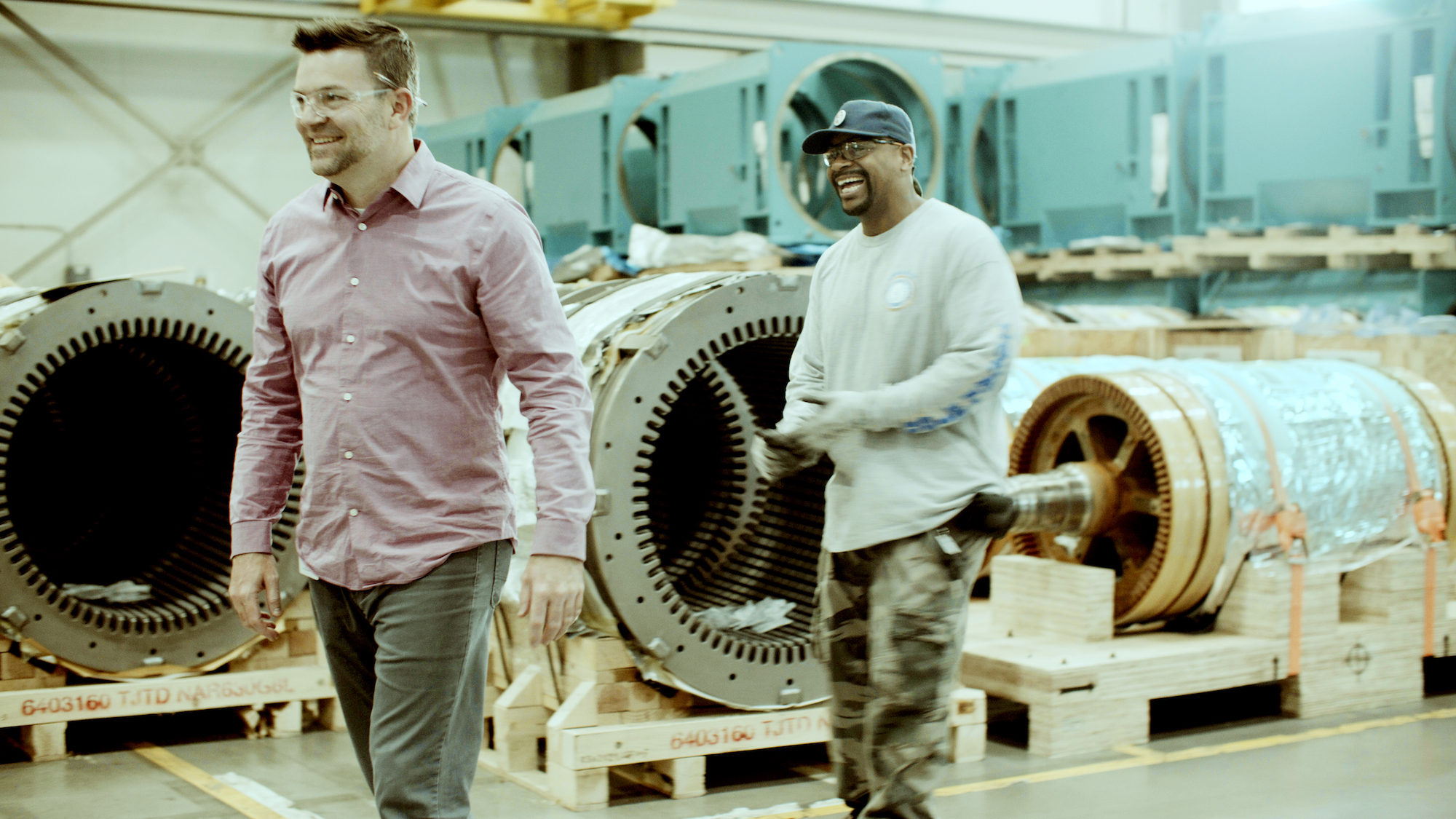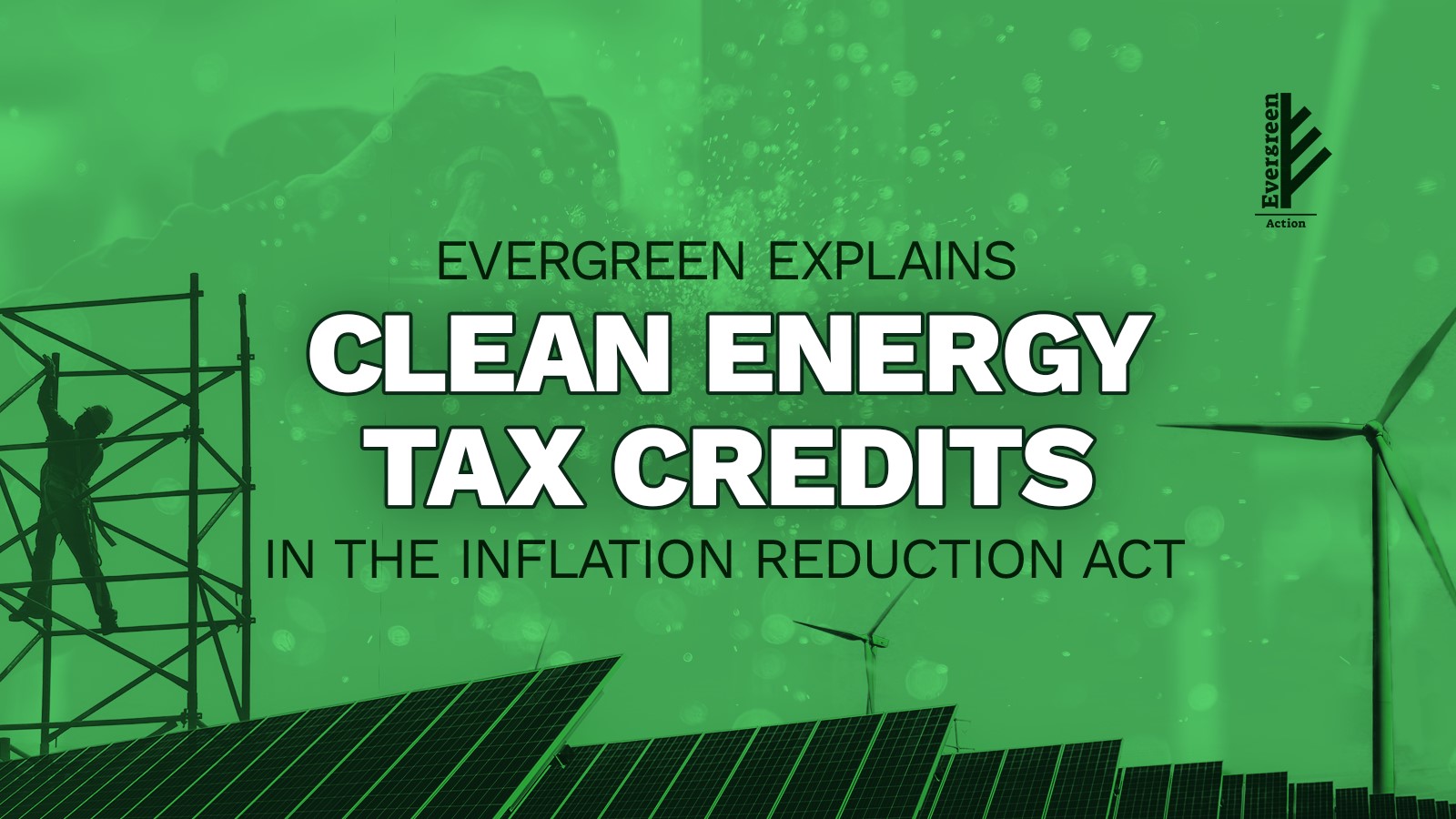Four ways Michiganders will benefit from the Michigan Clean Energy Framework
1. Cut energy costs for families by an average of $145 per year. Savings could increase to as much as $1,196 for homes that are energy efficient and fully electrify their appliances, heating and cooling, and transportation.
Transforming Michigan’s economy to run on reliable, clean energy means a safer climate future and energy savings for families. The clean energy and electrification policies currently pending in Michigan’s legislature would help cut spending on transportation fuels and fossil gas, along with keeping electricity rates stable through increased use of lower-cost renewable sources. The data shows that hitting ambitious carbon pollution reduction targets and keeping energy affordable for the average household go hand-in-hand.
2. Gain billions of dollars in federal investments
By 2050, state policies through the Michigan Clean Energy Framework, in tandem with the IRA, can bring in an additional $7.8 billion in tax credits, grants, and rebates, as Michigan builds out its clean energy economy. And if Michigan stays the course, it pays off—literally—in the long term.
By 2050, Michigan will more than double the funding it brings in from the IRA if it implements these state-level policies in tandem. State policies increase the benefits of federal funding because:
- Demand for new clean energy technology and manufacturing will increase as the state sets clean energy targets, driving investment and jobs.
- By passing stronger climate legislation, Michigan will be more competitive when applying for IRA funding, since certain federal grant programs may prioritize funding awards to states that are focused on cutting carbon pollution.
- Removing Michigan-specific state policy barriers, like strict restrictions on siting new renewable projects and adding community solar and rooftop solar to the grid, will allow clean energy businesses to be able to take advantage of more IRA incentives targeted at building this type of clean energy infrastructure.
This would mean massive growth opportunities for Michiganders and local businesses—on top of cleaner and more efficient homes, buildings, and cars.
3. Save hundreds of lives and billions in public healthcare costs
The 5 Lakes analysis shows that implementing these policies means Michigan can avoid nearly 1,000 premature deaths and realize an estimated $8.3 billion in public health savings. When people live in safer homes, drive less-polluting cars, and breathe cleaner air, they live longer and healthier lives. Polluting power plants and industrial processes are the main contributors to Detroit’s air pollution, which is rated as one of the worst in the U.S. for year-round particle pollution. State and federal policies that speed up the transition to clean sources of energy mean healthier and longer lives for Michiganders.

